Audi Q7 vs Volvo EX90 - Differences and prices compared
Compare performance (507 HP vs 680 HP), boot space and price (70600 £ vs 73700 £ ) at a glance. Find out which car is the better choice for you – Audi Q7 or Volvo EX90?
Costs and Efficiency:
Price and efficiency are often the first things buyers look at. Here it becomes clear which model has the long-term edge – whether at the pump, the plug, or in purchase price.
Audi Q7 has a slight advantage in terms of price – it starts at 70600 £ , while the Volvo EX90 costs 73700 £ . That’s a price difference of around 3077 £.
As for electric range, the Volvo EX90 performs significantly better – achieving up to 620 km, about 538 km more than the Audi Q7.
Engine and Performance:
Power, torque and acceleration are the classic benchmarks for car enthusiasts – and here, some clear differences start to show.
When it comes to engine power, the Volvo EX90 has a distinct edge – offering 680 HP compared to 507 HP. That’s roughly 173 HP more horsepower.
In acceleration from 0 to 100 km/h, the Audi Q7 is barely noticeable quicker – completing the sprint in 4.10 s, while the Volvo EX90 takes 4.20 s. That’s about 0.10 s faster.
There’s also a difference in torque: Volvo EX90 pulls somewhat stronger with 870 Nm compared to 770 Nm. That’s about 100 Nm difference.
Space and Everyday Use:
Cabin size, boot volume and payload all play a role in everyday practicality. Here, comfort and flexibility make the difference.
Both vehicles offer seating for 7 people.
In curb weight, Audi Q7 is noticeable lighter – 2055 kg compared to 2556 kg. The difference is around 501 kg.
In terms of boot space, the Audi Q7 offers significantly more room – 887 L compared to 324 L. That’s a difference of about 563 L.
When it comes to payload, Audi Q7 evident takes the win – 885 kg compared to 585 kg. That’s a difference of about 300 kg.
Who wins the race in the data check?
The Volvo EX90 sits well ahead of its rival in the objective data comparison.
This result only shows which model scores more points on paper – not which of the two cars feels right for you.
Costs and Consumption
View detailed analysis
Engine and Performance
View detailed analysis
Dimensions and Body
View detailed analysis
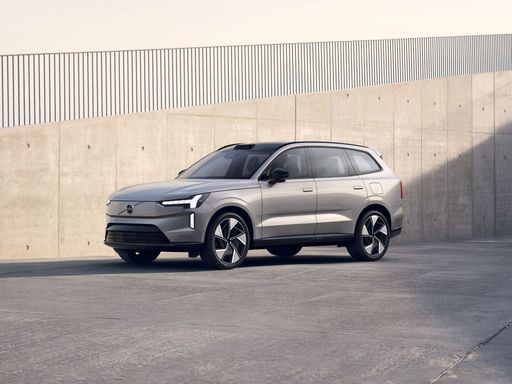
Volvo EX90
Audi Q7
The Audi Q7 cuts an imposing figure on the road, balancing restrained luxury with a spacious, tech-rich cabin that makes long journeys feel effortless. It rides with confident composure and polished manners, so if you want a premium family SUV that feels grown-up and worth the badge, the Q7 is a persuasive choice — even the in-laws will be impressed.
details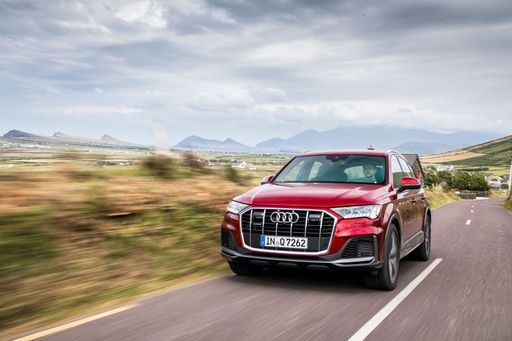
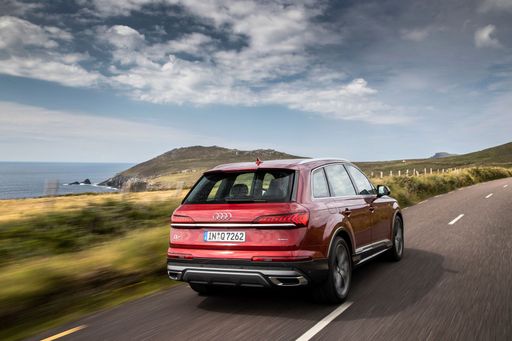
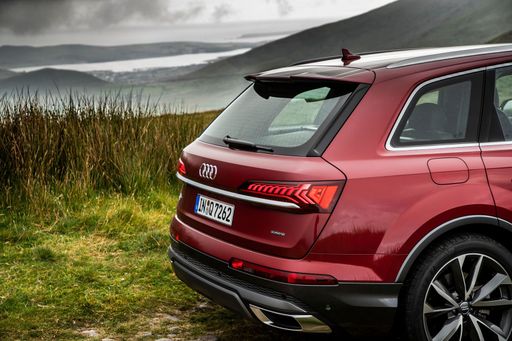
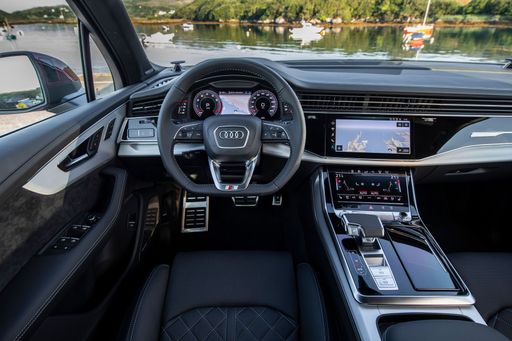
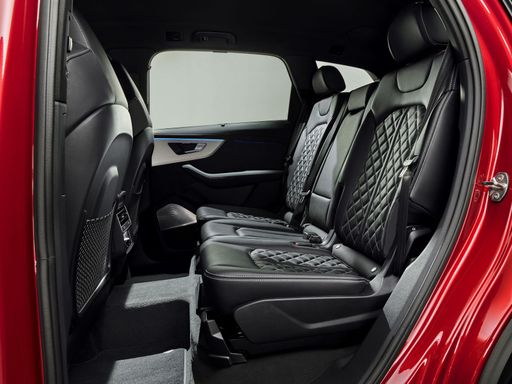
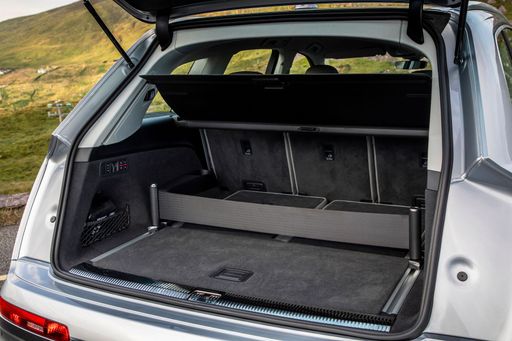
Volvo EX90
The Volvo EX90 feels like a Scandinavian fortress on wheels, combining serene luxury with smart safety features that make everyday driving remarkably calm and confident. It dresses cutting-edge electric technology in understated elegance, so buyers who want peace of mind without shouting about it will find it hard to resist.
details
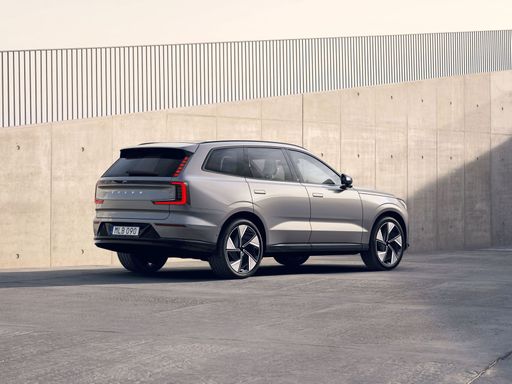
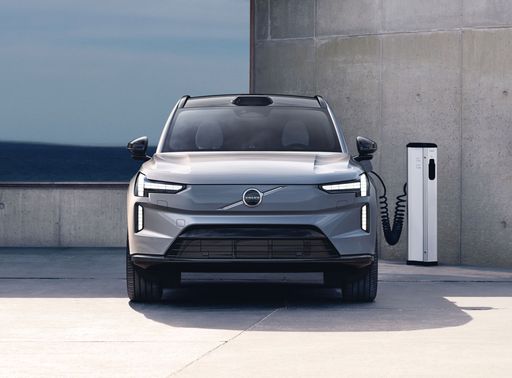
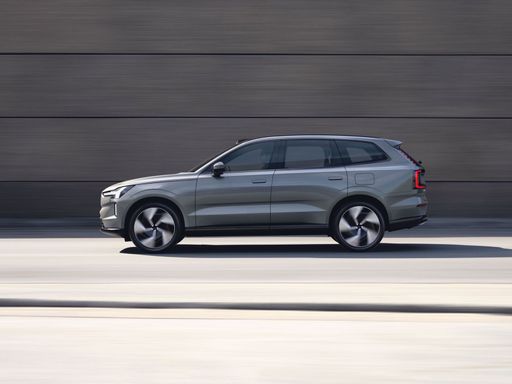
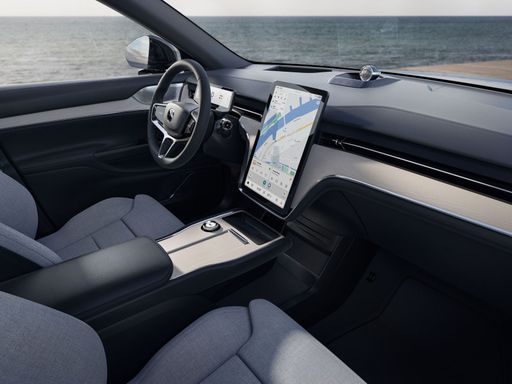
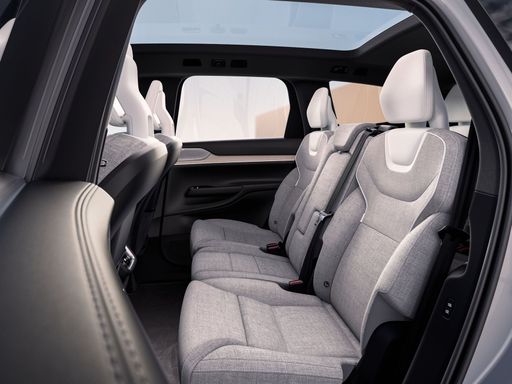
Costs and Consumption |
|
|---|---|
|
Price
70600 - 100600 £
|
Price
73700 - 94100 £
|
|
Consumption L/100km
3.8 - 11.9 L
|
Consumption L/100km
-
|
|
Consumption kWh/100km
-
|
Consumption kWh/100km
17.8 - 19.3 kWh
|
|
Electric Range
81 - 82 km
|
Electric Range
570 - 620 km
|
|
Battery Capacity
-
|
Battery Capacity
88 - 102 kWh
|
|
co2
86 - 271 g/km
|
co2
0 g/km
|
|
Fuel tank capacity
-
|
Fuel tank capacity
-
|
Dimensions and Body |
|
|---|---|
|
Body Type
SUV
|
Body Type
SUV
|
|
Seats
5 - 7
|
Seats
6 - 7
|
|
Doors
-
|
Doors
5
|
|
Curb weight
2055 - 2460 kg
|
Curb weight
2556 - 2764 kg
|
|
Trunk capacity
563 - 887 L
|
Trunk capacity
324 L
|
|
Length
-
|
Length
5037 mm
|
|
Width
1970 mm
|
Width
1964 mm
|
|
Height
-
|
Height
1744 mm
|
|
Max trunk capacity
-
|
Max trunk capacity
2082 - 2135 L
|
|
Payload
640 - 885 kg
|
Payload
375 - 585 kg
|
Engine and Performance |
|
|---|---|
|
Engine Type
Petrol MHEV, Diesel MHEV, Petrol, Plugin Hybrid
|
Engine Type
Electric
|
|
Transmission
Automatic
|
Transmission
Automatic
|
|
Transmission Detail
Automatic Gearbox
|
Transmission Detail
Reduction Gearbox
|
|
Drive Type
All-Wheel Drive
|
Drive Type
Rear-Wheel Drive, All-Wheel Drive
|
|
Power HP
231 - 507 HP
|
Power HP
333 - 680 HP
|
|
Acceleration 0-100km/h
4.1 - 7.1 s
|
Acceleration 0-100km/h
4.2 - 6.8 s
|
|
Max Speed
-
|
Max Speed
180 km/h
|
|
Torque
500 - 770 Nm
|
Torque
480 - 870 Nm
|
|
Number of Cylinders
6 - 8
|
Number of Cylinders
-
|
|
Power kW
170 - 373 kW
|
Power kW
245 - 500 kW
|
|
Engine capacity
2967 - 3996 cm3
|
Engine capacity
-
|
General |
|
|---|---|
|
Model Year
2025
|
Model Year
2025
|
|
CO2 Efficiency Class
G, B
|
CO2 Efficiency Class
A
|
|
Brand
Audi
|
Brand
Volvo
|
Is the Audi Q7 offered with different drivetrains?
Available configurations include All-Wheel Drive.
